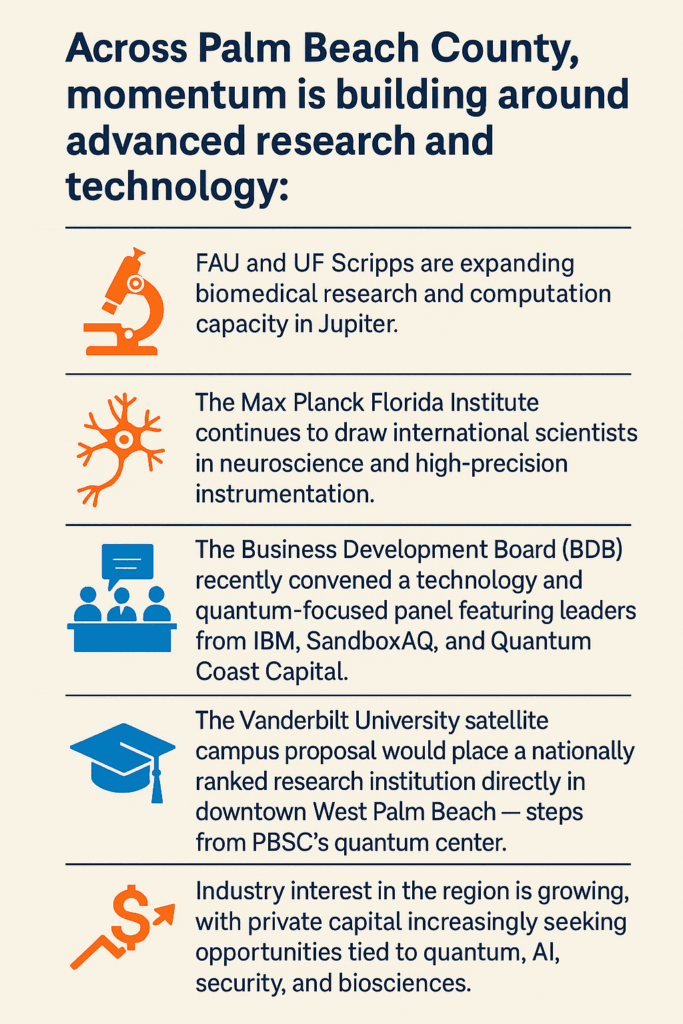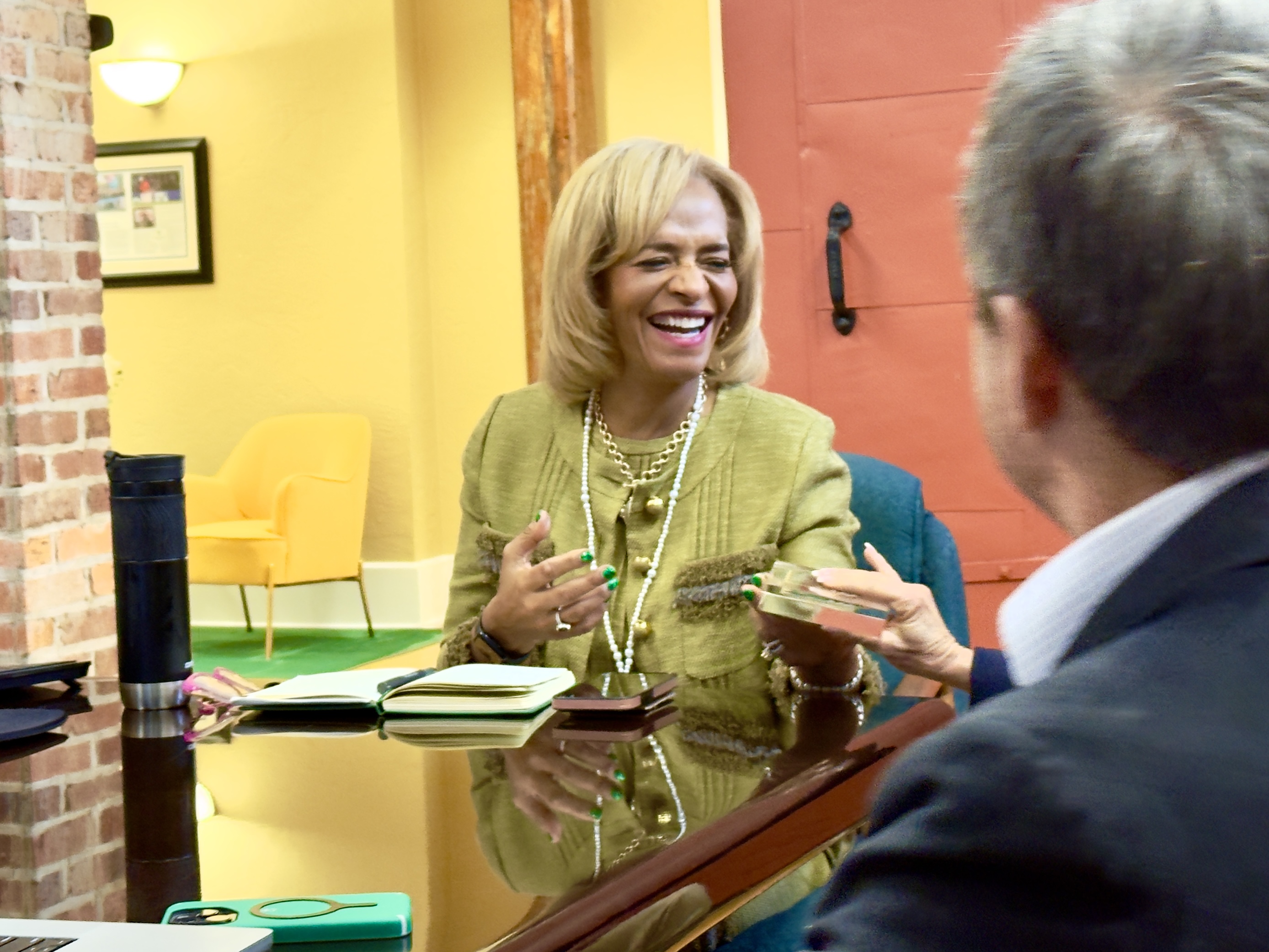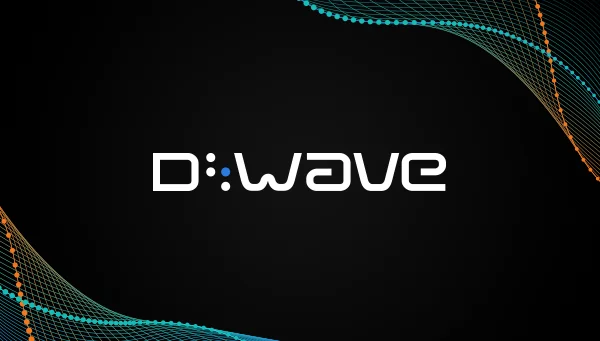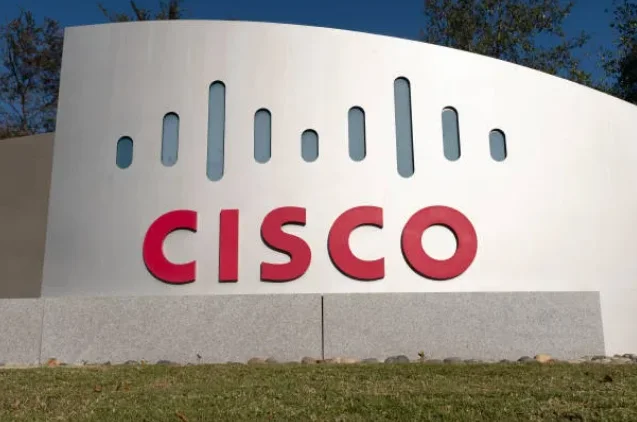Insider Brief
- IonQ’s visit to Palm Beach State College (PBSC) signals South Florida’s emerging effort to build a statewide quantum ecosystem anchored in education, workforce development, and regional infrastructure.
- PBSC’s expanding technical momentum — including a recent statewide cybersecurity win and new partnerships — positions the college to support quantum training, cybersecurity needs, and future startup activity.
- Florida institutions are exploring coordinated quantum strategies as states and nations accelerate their own programs, with IonQ’s tour assessing readiness for local demand and potential in-state quantum hardware deployment.
- Image: Ava L. Parker, president of PBSC, holds IonQ’s next-generation quantum processing unit, which uses electronic qubit control.
For half a day on Tuesday, Palm Beach State College’s downtown campus became the quiet center of a potentially transformative moment for Florida’s technology future. A team from IonQ, the Maryland-based leader in trapped-ion quantum computing, arrived to explore the feasibility of installing a physical quantum computing system inside the college’s newly established quantum center — a move that could position South Florida as a competitive force against rapidly advancing quantum ecosystems emerging across the country and abroad.
The visit marked the first stop in a statewide listening tour aimed at understanding how Florida’s universities, colleges, and high schools might adopt — and benefit from — access to local quantum infrastructure. IonQ’s Chief Revenue Officer Rima Alameddine, alongside Senior Director of Strategic Partnerships Howard Lock, spent the morning with PBSC President Ava L. Parker, JD and Matt Cimaglia, Managing Partner of Quantum Coast Capital and a founding partner of the center, to discuss practical needs across education, research, cybersecurity, and startup development.
“We’re not studying quantum for the sake of theory,” said PBSC President Parker. “We’re focused on what it means for jobs, for training, and for Florida’s workforce. When quantum reaches maturity, we want our students to be the ones ready to build it, operate it—and lead in it.”

A College With Momentum
Just days before IonQ’s visit, the college won first place in the Annual Florida College System Cybersecurity Competition, bringing statewide attention to PBSC’s growing technical capabilities. While the competition focused on cybersecurity, the victory underscored something broader: the college is beginning to cultivate the kinds of skillsets that align with a quantum future, particularly as concerns around encryption, QKD, and the looming arrival of “Q-Day” start to shape national discussions on technology and security.
A Regional Advantage Taking Shape

The campus holds a uniquely strategic position. It is directly connected to Florida LambdaRail, the high-speed research network used by major universities across the state. Just steps away is Dreyfoos School of the Arts, where students have already formed a quantum club — a rare early signal of grassroots interest. And across the street sits the proposed site of Vanderbilt University’s satellite Florida campus, positioning PBSC at the center of an emerging educational corridor that could soon integrate quantum studies across multiple institutions.
Through strategic partnerships, the new center is being positioned as an incubator hub for quantum startups, with growing support from Quantum Coast Capital and the Florida Opportunity Fund, two groups focused on expanding the state’s technology economy through domestic investment.
Rather than merely housing hardware, the center is being designed to grow an ecosystem: industry partnerships, workforce development, education pipelines, and eventually — if approved — a physical quantum system in Florida, accessible to students and researchers from across the state.
Florida’s Place in the Global Quantum Landscape
The IonQ visit also comes amid a surge of international activity surrounding quantum technology. Just two weeks ago, Florida officials visited Japan to discuss bilateral collaborations in quantum research — emphasizing the urgency of domestic capability as other nations accelerate their programs. States such as Colorado, Illinois, and Maryland have already attracted significant quantum investment through public-private partnerships, often tied to national security and regional economic growth.
Florida, for now, is positioning itself as a challenger.
According to those present during the PBSC meetings, the goal is not to compete to be first — but to build a state-ready quantum ecosystem before the technology becomes essential. As Matt Cimaglia noted, “Quantum is moving quickly. You don’t wait for it to arrive — you build the foundation before it does. That’s how a region leads instead of follows.”
The Question Ahead
IonQ will continue its tour across Florida in the coming weeks, meeting with institutions and stakeholders to better understand local demand. But Wednesday’s half-day visit served as a clear signal: South Florida is not simply learning about quantum — it is preparing how to use it.
And for Palm Beach State College, the groundwork has already begun.















